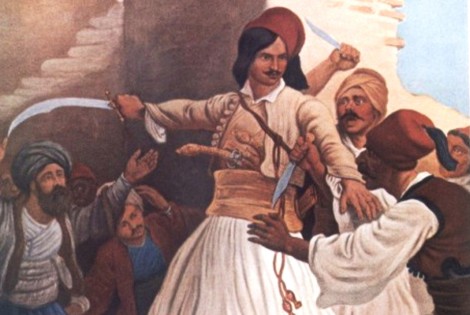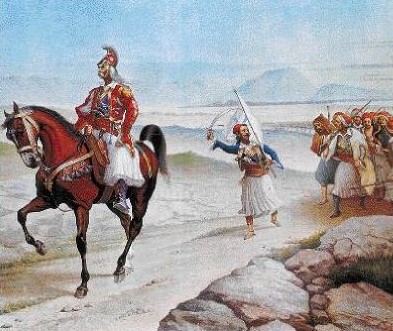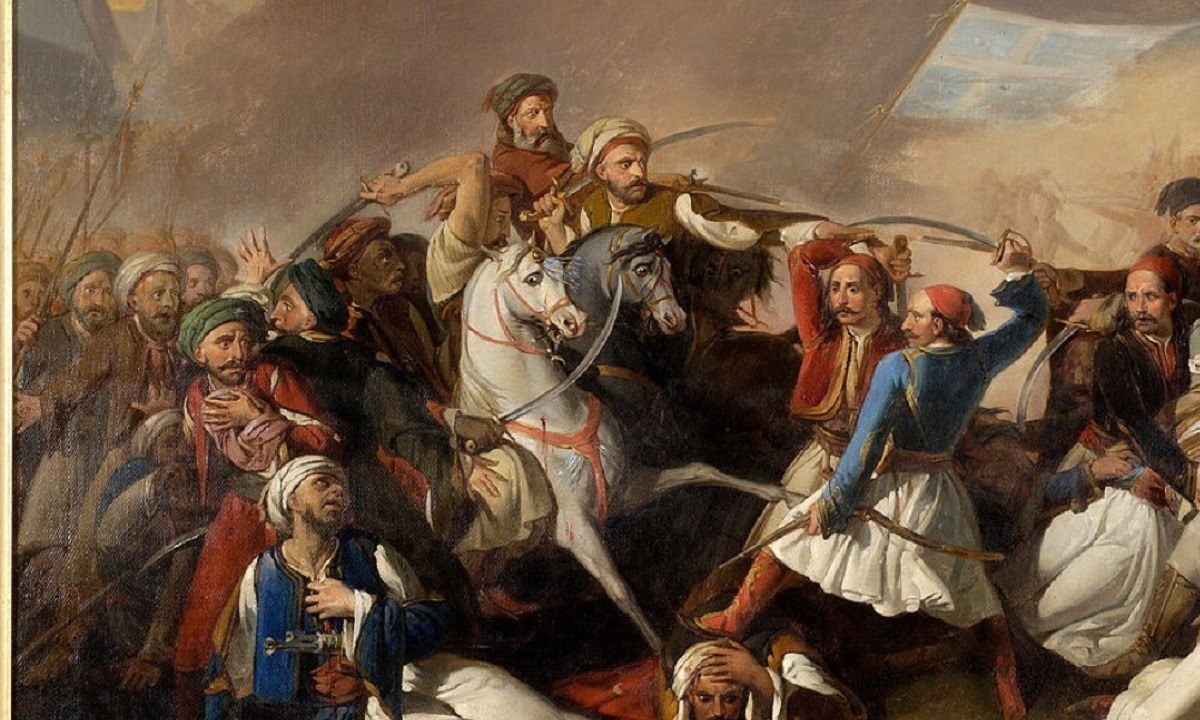The historic Battle of Valtetsi was fought on May 12, 1821 and became one of the most decisive fights in the Greek Revolution. Taking place around the mountainous village of Valtetsi in Mantineia (12 km west of Tripoli), the battle essentially paved the way for the fall of Tripoli on September 23, 1821.
Greek camps were set up in Valtetsi, at the initiative of Theodoros Kolokotronis, to coordinate the military operations aimed at the important conquest of Tripoli. Bastions were built on the hills around the village and the houses were fortified to shield the rebels from an attack.
On May 6, 1821, a Turkish General named Rubi bey, learned of the reconstruction of the Greek camp in Valtetsi and decided to take action. Forming a well-equipped military corps of 12,000 men, he ordered an attack on the village.

The Turkish army’s arrival in Valtetsi shortly before dawn on May 12, marked the beginning of a battle with Greek forces lasting 24 hours.
Valtetsi was defended valiantly by 2,300 Greek revolutionaries. The defensive strategy was to fortify 4 tower houses in the area following the pyrgospitia Maniot pattern: Kyriakoulis Mavromichalis, as field-commander, defended the first tower with 120 men. Ilias Mavromichalis was in charge of the second one with 250 men. Ioannis Mavromichalis with 350 men commanded the third tower. Mitropetrovas with 80 men stayed in the last one.
Rubi bey ordered his army to storm the towers, while a small force was to move behind the village itself to cut off the Greeks’ expected retreat to the mountain paths. He demanded the Greek rebels surrender their weapons but, when refused, began his full assault. The Turkish and Albanian forces managed to capture some positions, including the water supply, but a fierce resistance obliged them to demand for reinforcements.
In the meantime, more Greeks, numbering 700 men, under Theodoros Kolokotronis, arrived and attacked the Ottomans on their flanks weakening their operational power. Another contingent under Dimitrios Plapoutas, also made a significant entrance into the battle to give vital support to the exhausted rebels, balancing the actions.

Against Ottoman expectations, Greeks maintained their positions as the Ottoman cavalry became useless when trying to attack on rocky slopes. All Turkish and Albanian attacks were repelled and finally Rubi bey ordered the retreat of his army. At this point, the Greeks abandoned their defensive attitude under the fortified positions and violently counterattacked, completely breaking the enemy lines.
Hence, the Greek victory was decided and the rebels captured two cannons and ammunition. Something which would prepare them for the many battles ahead.
Casualties from the battle were still high with 514 dead and 635 injured. The losses of the Greeks amounted to only 4 dead and 17 wounded.
Kolokotronis, according to his memoirs, said to his compatriots: We must render up thanksgivings for this day, which should be kept holy for ever, as the day upon which our Motherland achieved her freedom.
Aftermath:
The Battle of Valtetsi was the first decisive Greek victory in their struggle for freedom. Its effects were as follows:
- It proved that an organised rebel force could face and defeat the Ottoman military machine.
- It strengthened the morale and self-confidence of the Greeks, which encouraged them to continue their task to free their homeland.
- It proved that real Ottoman control in central Peloponnese remained within Tripolis’ walls.


